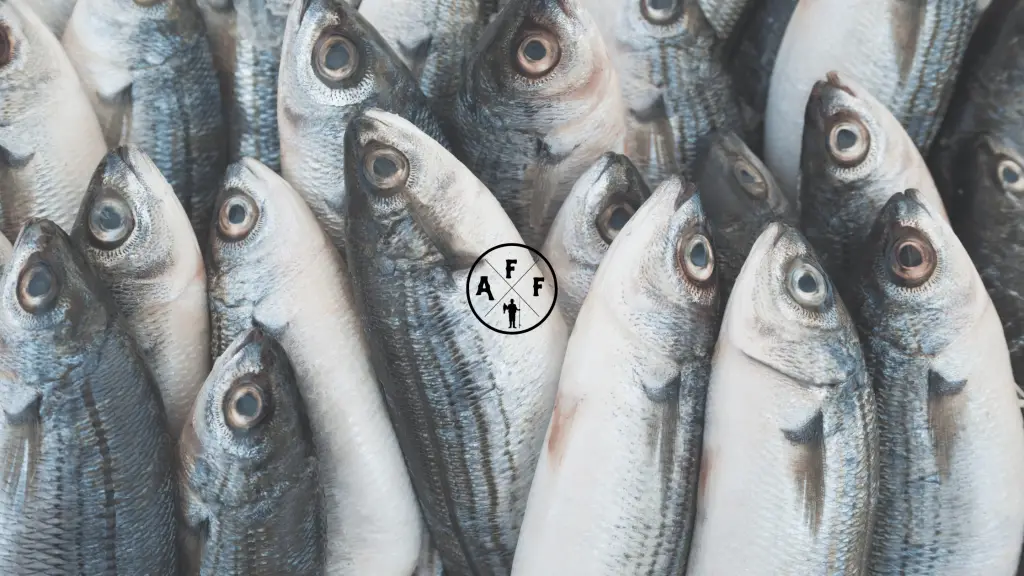
Ever wondered if you can eat fish scales? The thought might seem strange, but it’s a question that has crossed the minds of many seafood enthusiasts. Fish scales serve as protective armor for aquatic creatures, shielding them from predators, parasites, and injuries. While these tiny structures may not seem particularly appetizing, it’s worth exploring whether they’re safe and even beneficial to consume.
The simple answer is that you can eat fish scales, but it may not be the most enjoyable experience. Although they’re not harmful, fish scales have a sharp and tough texture, similar to bone or teeth, which can make them difficult to chew or swallow. They may provide some minerals and healthy fats, but their overall nutritional value is limited.
Our investigation reveals that while eating fish scales is safe, it’s not the most appealing culinary experience. Regardless, it’s crucial to cook the scales thoroughly, as raw fish scales may pose a risk to the mouth and throat. Remember, safety and taste should always be considered when exploring new culinary adventures.
Can You Eat Fish Scales
Nutritional Value
Fish scales, in my experience, do not provide much nutritional value. Although they are composed of materials similar to that of bone or teeth, they lack significant amounts of nutrients like Omega-3 fatty acids found in fish flesh. The taste of fish scales is not particularly pleasant, so I wouldn’t recommend them for culinary purposes.
Safety Considerations
I can say that fish scales are safe to eat, but I recommend they should be cooked properly before consumption and only be eaten in small amounts. The scales can be sharp, so the risk of injuring my mouth or throat is something to consider. To prevent any harm, cooking the fish scales thoroughly will make them softer and less dangerous for consumption.
In conclusion, while it is possible to consume fish scales, I would not recommend doing so due to the lack of nutritional value and potential safety concerns. It is advisable to remove the scales before eating the fish to enjoy its taste and receive the full health benefits of the fish itself.
Benefits of Eating Fish Scales
Collagen Content
I’ve discovered that fish scales contain a small dose of collagen, which is ideal for improving bones, ligaments, and joints. Collagen is a protein that is essential for maintaining the health and elasticity of our skin, hair, and nails. By eating fish scales, I can potentially reap these nutritional benefits and perhaps even enhance my skin’s appearance.
Environmental Impact
While consuming fish scales might not be commonly practiced, I found that doing so could have a positive impact on the environment. By utilizing more parts of the fish, I can help reduce waste and promote a more sustainable approach to consuming seafood. Additionally, if I can find use for other traditionally discarded parts of the fish, I can further contribute to a zero-waste mindset, which has multiple benefits for the environment.
How to Prepare Fish Scales for Eating
As someone who enjoys experimenting with different food, I have learned that fish scales can be prepared in various ways. In this section, I will share with you two methods to prepare fish scales for eating: Crispy Fish Scale Chips and Fish Scales in Traditional Cuisine.
Crispy Fish Scale Chips
Preparing crispy fish scale chips is an easy and delicious way to enjoy fish scales. Here’s how I do it:
- First, ensure that the fish scales have been properly cleaned by rinsing them thoroughly with water.
- Pat the scales dry using a clean kitchen towel.
- In a mixing bowl, combine the fish scales with your choice of seasoning. I personally like to use a combination of salt, pepper, and garlic powder.
- Preheat a frying pan with vegetable or canola oil over medium-high heat.
- Once the oil is hot, carefully add the seasoned fish scales to the pan.
- Fry the fish scales until they turn golden brown and crispy, which usually takes around 2-3 minutes per side.
- Remove the fish scales from the pan and place them on a paper towel to absorb excess oil.
You can serve these crispy fish scale chips as a snack or use them as a unique garnish for various dishes.
Fish Scales in Traditional Cuisine
In some traditional cuisines, fish scales are incorporated into specific recipes. One such example is found in Vietnamese cuisine, where fish scales are used in preparing a dish called “bánh xếp.”
Here is a brief outline of how to prepare fish scales for this particular dish:
- First, clean and rinse the fish scales as previously mentioned.
- Steam the fish scales for about 10-15 minutes to soften them.
- In a mortar and pestle, pound and grind the steamed fish scales into a fine paste.
- Mix the fish scale paste with rice flour and water to create a dough-like consistency.
- Form the dough into small, thin patties and steam them once more for about 5-8 minutes.
Once they are cooked, these fish scale-infused patties can be served as part of a traditional Vietnamese meal. Although this dish is not for everyone, it offers an intriguing culinary experience that highlights the versatility of fish scales.
Potential Risks and Disadvantages
Allergies and Sensitivities
As someone who enjoys seafood, I must be cautious about the potential risks of consuming fish scales. While scales might not be a common allergen compared to fish meat, people with allergies or sensitivities to fish and seafood might experience symptoms upon exposure to fish scales. Moreover, some fish scales could have sharp edges, making them a potential choking hazard if accidentally consumed.
Contaminants in Fish Scales
Another concern I have is the presence of contaminants in fish scales. Certain fish can have mercury or other harmful substances in their scales, posing a health risk if consumed. On top of that, if I cook fish with the scales on, it could give the dish a bitter taste. Therefore, it’s crucial for me to exercise caution when dealing with fish scales and consult professional guidance if necessary.
Frequently Asked Questions
Can cooked scales be eaten?
Yes, I can eat cooked fish scales. They must be cooked very well before eating, as uncooked or undercooked scales can be tough and potentially harmful. However, it is worth noting that they do not have a particularly appealing taste or texture.
Effects of eating fish scales?
Eating fish scales generally does not cause any harm to my health if they are properly cooked. However, they can be sharp and crunchy, which may cause discomfort while chewing or swallowing.
Are fish scales good for health?
Fish scales do contain some minerals and healthy fats, but their nutritional value is relatively low. Thus, while they are not harmful, I wouldn’t consider them a significant source of nutrients, especially compared to the actual fish meat.
Can you leave fish scales on when cooking?
I can cook fish with the scales on, but they may alter the texture and taste of the cooked fish. Leaving the scales on may also make the fish more difficult to eat, and it is generally recommended to descale the fish before cooking for better enjoyment and ease of consumption.
For more guidance on seafood that you can or can’t eat, check out the pages below:
- Can You Eat Stingrays: A Quick Answer & My Opinion on Taste
- Can You Eat a Starfish? Uncovering the Facts
- Can You Eat Barnacles? A Quick Guide
- Can You Eat Sheepshead Fish? Are They Any Good?
- Can you Eat Saltwater Catfish? Is It Any Good?
- Can You Eat Crappie and What Does It Taste Like?
- Are Bluefish Good to Eat: Quick Answer & My Opinion
- Are Spanish Mackerel Good to Eat: Quick Answer & Opinions










